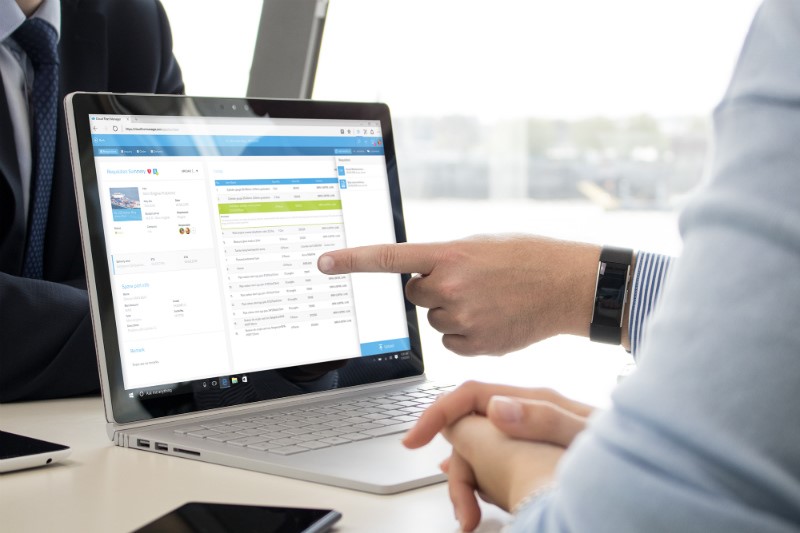In today’s interconnected world, the transportation of goods from one place to the other is an essential part of any business. A fleet manager serves as an owner of multiple transportation services and can provide you with a fleet of vehicles whenever required.
However, in comparison to previous standards, you as a Fleet Manager are not only responsible for the vehicle but also for the business aspects of the company that come along with it.
What is Your Role as a Fleet Manager?
Contents
- What is
Your Role as a Fleet Manager?
- 1. Proper Utilization of Vehicles
- 2. Maintenance and Repairs
- 3. Caution While Adding a New Vehicle to the Fleet
- 4. Legal Issues and Training
- 5. Recruitment of New Employees
- 6. Financial Management
- 7. Streamlining The Process
- 8. Bidding Properly
- 9. Managing Your Accounts Daily
- 10. Collaboration
- 11. Working With Suppliers And Partners
- 12. Role Of Technology
- Fleet Management Software
- Conclusion
1. Proper Utilization of Vehicles
As a Fleet manager, you are not only managing vehicles for transportation but also need to use them for their basic operations for maximum output, while focusing on fuel consumption and maintenance. You may have a fleet of trucks, cranes, bulldozers, trailers, and tractors. It is essential to be able to use every vehicle in its right place to maximize work output.
2. Maintenance and Repairs
You need to make sure that every vehicle undergoes proper maintenance, and keep track of the schedule for the next due date. Make sure to repair any vehicle problems on the way. Negligence may result in accidents.
Ensure that every vehicle has the necessary tools and spares for on-road maintenance, as well as a first-aid kit for emergency treatment.
3. Caution While Adding a New Vehicle to the Fleet
While adding a new vehicle to the fleet, you as the fleet manager must decide whether it is better to buy or lease the vehicle. You must also consider whether you will opt for a driver under your company or a subcontractor to engage with the new vehicle.

Always make sure to buy a good vehicle, after checking the vehicle thoroughly and performing a test drive.
Make sure to check out the attachments you will require, such as trailers, and find out if the vehicle is compatible or not.
4. Legal Issues and Training
Learn the federal and state laws in your locality. Make sure to stay compliant and reach a higher CSA score.
As the fleet manager, you are responsible for creating a team that can train newbies into your organization and skills them with better and safer driving drills. You also need to register all your vehicles.
5. Recruitment of New Employees
If you are a business owner of a fleet team, you need new employees to manage your backend processes once your business starts getting quicker and developing more stable and better returns on investment.
You need to choose employees based on their job skills and pay attention to their background history. Postpone extra recruitment if you are still unable and unsure to maintain new employees without incurring a loss. You need to choose your drivers based on their driving history, job skills, and character.
6. Financial Management
You need to manage all the processes to the last detail to ensure that the fleet team is efficient and not incurring a loss.
In any organization related to goods, transportation is regarded as one of the necessary evil costs, and your job as the fleet team manager is to cut down these costs. Make sure that the operational costs, which include fuel costs, training costs, maintenance charges, toll taxes, and other forms of expenses, are well managed.
7. Streamlining The Process
Instead of having small clusters, fleet services work best as a swift communication and fast response team. Streamlining the process can help to make the business cost-efficient.
8. Bidding Properly
Once you have a good idea about the operational costs, it is essential to bid properly since bidding for higher prices may result in project loss, and bidding on too little will cause loss of finance.
9. Managing Your Accounts Daily
When it comes to the fleet management industry, you need to properly take notes of every logistical barrier as well as fees, fines, and charges. You must also maintain a register of all the clients and supplier addresses and create a logistics plan as early as possible and follow up with all the drivers for any changes and new items that need to be delivered or received.
10. Collaboration
For a smaller team, a collaboration between the team is essential and shall provide a better work culture. It will also prevent confusion between work teams with better communication, and the entire organization will work as a team instead of different departments. It will help in realizing the goal faster and eliminating huge costs.
11. Working With Suppliers And Partners
Having a good reputation with suppliers and partners can help you negotiate deals, as well as schedule, assign, and maintain transportation.
12. Role Of Technology
The use of fleet management software and automation has completely changed the job role of managers since they do not have to scrounge for information anymore. In today’s world, you need to follow up with the information received from the software.
Fleet Management Software
In the beginning, fleet software can feel very challenging to learn, but they will reduce your workload to negligible amounts.
Fleet management software can accomplish the following:
1. Monitor Fuel Cost And Spending:
Fuel costs run as the highest recurring costs for a vehicle, and if you do not conserve it, you will soon find money leaving your pocket.
2. Report Unsafe Driving Practices:
Unsafe driving practices can reduce CSA score, which will make it increasingly difficult to gain new clients.
3. Send Maintenance Alerts:
Fleet management software can help you with periodic and preventive maintenance reminders of different vehicles. It will, in turn, prevent malfunctioning and accidents on the road.
4. Track Driver Location And Routes:
Using telematics, you can easily track the location and routes of every vehicle in your fleet; it prevents vehicle theft and helps to track driver location. GPS enabled vehicles can easily guide the drivers to their destination, and you can help with the telematics data as well. It promotes safer driving since the driver does not have to send location updates via text, mail, or call.
5. Maintain Standards For Perishable Goods:
Automation and IoT help to maintain the right temperature and humidity for perishable goods.
6. Monitor activity:
Use a truck dash cam to monitor driver activity and as a legal proof.
7. Automation Benefits:
Most of your work can now be automated these days, with new technologies like IoT. Hence, what the organization requires from you are proactive decisions and a streamlined flow of communication between the team.
Conclusion
The future of fleet businesses lies in a merged human-tech environment. As a Fleet manager, you need to pay attention and update your business with new technology for rapid growth.


